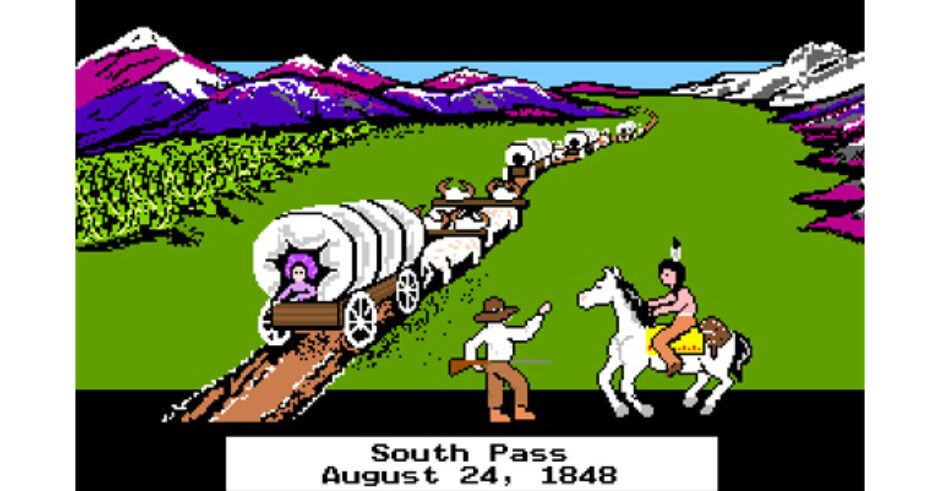The Oregon Trail Generation, ever hear of it? That’s OK, neither had I until I read more about it and quickly realized that I was part of it. Insert image of me having a hard swallow. It is also known as the “Forgotten Generation.” The sort of “skipped-over” group, small that it is, who found themselves with a beeper and a cell phone at University. Recently there was an article calling us “Xennials.” Whatever the coined phrase is at the moment, this micro-generation speaks to the small lot of us that were born in the cusp years; the tail end of GEN X and right before Millennials. It has been said that the years are typically referred to the late 1970’s (1977) and early 1980’s, up to 1983. We are the youngest brothers and sisters to the GEN X group, and some days we recognize as such, and others as a Millennial.
If you have ever found yourself feeling a bit lost in the crowd, relating both to your older siblings by playing board games on family retreats, and in the same trip, finding yourself face-first in your iPad or PlayStation, then you’re likely part of this generation. It was a hard pill for me to swallow at first. I recognized myself clearly in the information I was reading. I aligned with both of them, but still feel like I am part of a generation that straddles both. See, I come from a large family, one that currently spans four, possibly five generations, living all at the same time on this ball that is shooting through space that we call Earth. It made me also ponder, not about how diverse and unique our future family reunions will be, but also curious about how this is impacting the workplace.
As I am sure with most of you, I work alongside at least two generations in the workplace. I love it! The wealth of knowledge transfer is really like nothing ever seen before. It breeds great conversation, quicker problem-solving, and in many ways, community. There is a lot of talk about the Boomers retirement, which is circling right over there by the water cooler. This conversation also talks about the lack of leadership skills in the millennial group. They are rapid to learn, be promoted, but there are just some things that can’t be Googled, like emotional intelligence, leadership skills learned by real-life events, and applied knowledge that comes from experiences.
A lot of what is out there talks about the Boomers retiring and leaving the workforce of the future to be led by us, the Oregon Trail Generation and our siblings GEN X. I am inclined to agree with this article by HuffPost.
This creates a unique challenge. How do we as this “Forgotten Generation” quickly bridge the gap between some of the GEN X community, and our friends the Millennials? We must start to look at ways to evolve our teams to learn the skills they will need to have to lead, improve work cultures, and essentially not fall apart when we ourselves are about to retire. The work needs to start now. I am inclined to agree that if we don’t, the workplace will almost surely “fall-apart.” This won’t necessarily descend into chaos, but if the future leaders are not prepared by both training and mechanisms, then if not a stall, there will surely be a slowdown in productivity.
Although this particular article by HuffPost was done well, I think it is missing a key element about how GEN X and the Oregon Trail Generation will help to “save” the workplace. In my opinion, the only way to do that is to have cultures of true Servant Leadership. Servant Leadership, which is something that in my experiences did not resonate well with either the Boomer or GEN X generations, is lead with the leader working for the group, not just directing it. It is not working in the way of direction down, but more the feedback up that drives a servant leadership. It’s listening, empathetic, and acts as a steward. I think the key for us in this group is to lead our upcoming leaders from this mindset and develop mechanisms for feedback, collaboration, and servitude. By having this philosophy, the Millennial teams are included in the decision, or at the least feel heard and considered as part of the decision making process. They are smart enough to understand that their suggestion may not be the final decision made, but they are much more willing to align with decisions, thus creating an opportunity for the leadership to show leadership skills and guide them through the steps. This creates a learning environment, which over time, will better equip the Millennials to take our place as we exit in twenty to twenty-five years.
However you wish to look at this situation, one thing is certain; the Boomers will be leaving the workforce before us, and we will be the two groups that bridge the leadership gap for the Millennials. We’ll need to work together, meet in the middle, and design plans with real-life activities to develop the leadership skills they will need. So if you haven’t already, let’s get started!
To see a recent article about our new title, Xennials by @GlobalNews, link here.


